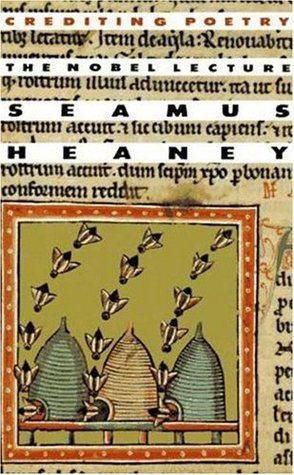What do you think?
Rate this book


53 pages, Hardcover
First published January 1, 1996
In one of the poems best known to students in my generation, a poem which could be said to have taken the nutrients of the symbolist movement and made them available in capsule form, the American poet Archibald MacLeish affirmed that "A poem should be equal to/not true." As a defiant statement of poetry's gift for telling truth but telling it slant, this is both cogent and corrective. Yet there are times when a deeper need enters, when we want the poem to be not only pleasurably right but compellingly wise, not only a surprising variation played upon the world, but a re-tuning of the world itself. We want the surprise to be transitive like the impatient thump which unexpectedly restores the picture to the television set, or the electric shock which sets the fibrillating heart back to its proper rhythm.